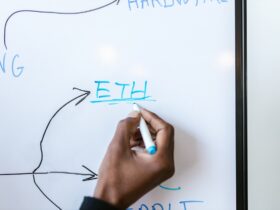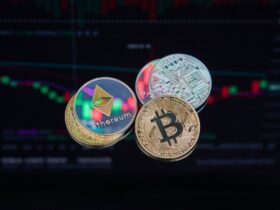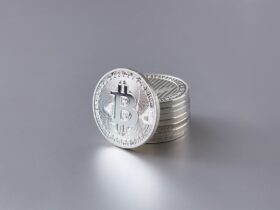Decentralised apps, or dApps, function similarly to regular mobile apps, but instead of processing data through centralised servers such as those of Facebook or Google, they interact with the blockchain. This allows users to directly participate in blockchain transactions using the app’s interface.
Gaming Decentralised Applications (dApps)
CryptoKitties:
CryptoKitties is one of the first blockchain games where users can buy, collect and breed virtual kittens, each representing a unique non-fungible token (NFT). The game allows users to participate in breeding by creating new generations of kittens with different rare traits, which can increase their market value.
CryptoKitties also supports an active community where users can trade and exchange their kitties.
Zed Run:
Zed Run offers virtual horse racing where each horse is also an NFT. Members buy, train and race their virtual horses. Each horse has unique characteristics and performance history, which adds strategy to the selection of horses to race. The results of each race are recorded on the blockchain, ensuring transparency and fairness of the competition.
Decentralised Gambling:
The category of gaming dApps also includes various gambling games where users can participate in blockchain-based games such as poker, roulette or slots. These games are managed by smart contracts, which ensures their fairness and transparency.
Players can bet and win cryptocurrency, with the entire game history stored on the blockchain. These games can also be accessed at credit card casinos.
Financial Decentralised Applications (DeFi)
Aave:
Aave is a platform that allows users to invest cryptocurrencies such as Ethereum or Matic to earn interest. This decentralised app also provides the ability to borrow tokens, provided there is enough collateral. The Aave platform is popular among users due to its flexibility in managing lending and margin transactions.
Liquidity providers:
Investors can buy tokens and place them in liquidity pools that are used by other users for trading. This creates an opportunity for token holders to earn revenue in the form of transaction fees. Liquidity pools are considered one of the key tools in the DeFi ecosystem as they provide the necessary market liquidity.
Decentralised exchanges (DEX):
Decentralised exchanges, such as Uniswap, provide users with a platform to exchange cryptocurrencies without the need for identification or verification. DEXs allow transactions with low fees and a high degree of anonymity. These platforms play an important role in the accessibility and distribution of cryptocurrency transactions to a wide audience.
Tracking Applications in Blockchain
Zapper is one example of a tracking app. Zapper is an app that aggregates information about a user’s various cryptocurrency wallets and displays it on a single page. This allows users to easily manage and analyse their assets on different blockchains, providing quick access to balance updates and transaction history.
Zapper supports many different blockchain platforms, making it a versatile tool for tracking cryptocurrency investments.
Blockchain-based Trading Platforms
CryptoKitties:
Although CryptoKitties is originally a game, it also functions as a trading platform where users can buy and sell NFT kittens. The ability to trade these unique virtual assets has attracted widespread attention, especially when the value of some kitties has risen significantly.
This platform helps popularise the concept of NFTs and demonstrates the potential of blockchain technology to create new forms of digital ownership.
Rarible and OpenSea:
Rarible and OpenSea are two leading marketplaces for buying, selling and creating NFTs, including artwork, collectibles and more. These platforms provide tools that make it easy to interact with blockchain, making the trading process accessible to a wide audience.
They also contribute to the growth of the digital art ecosystem by giving artists the opportunity to monetise their creative works directly through blockchain technology.
Bedali:
Bedali offers a unique approach to using cryptocurrencies in everyday life by allowing users to purchase goods and services, including gift cards, with cryptocurrency. The platform provides anonymity and fast delivery of digital goods, making it a popular choice among privacy advocates.

Bedali demonstrates how blockchain can simplify and speed up the shopping process while providing a high level of transaction security.
Educational Applications
An educational decentralised app is under development where users will be able to take tests, watch videos, read articles and earn experience points using their MetaMask wallet. For enough points, users will be able to create limited series of NFTs.
Ethereum Name Service (ENS)
The Ethereum Name Service (ENS) improves Ethereum blockchain interaction by turning complicated addresses into simple names. ENS lets you name an address “username.eth” instead of utilizing lengthy numeric addresses. This makes transferring and receiving cryptocurrency easier and less error-prone for average users. To make Ethereum more useful than just transactions, ENS is essential.
Conclusion
Decentralised applications (dApps) represent a significant step in the evolution of blockchain technology, providing users with a variety of capabilities from financial transactions to gaming and educational platforms. They provide transparency, security and accessibility, changing traditional approaches in many areas.
The development and popularisation of dApps is helping to increase the understanding and use of blockchain, opening up new perspectives for technological progress and innovation.









